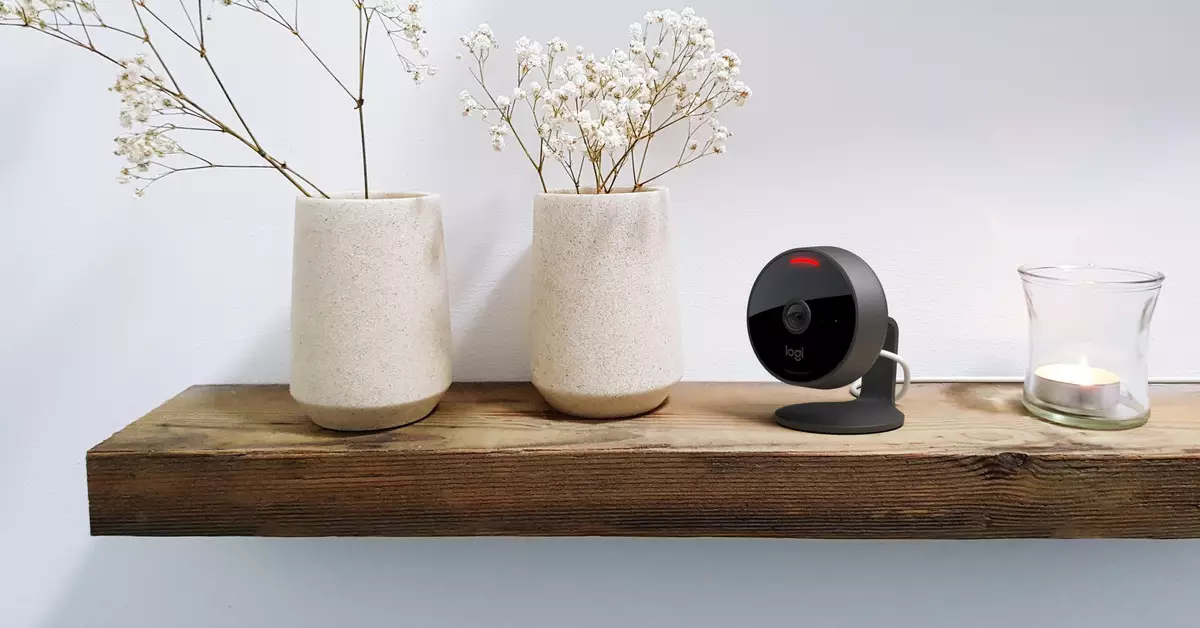The landscape of smart home technology is evolving, and Apple appears to be gearing up for a significant entry into this realm with a new product: a smart security camera. This development signals the company’s shift towards more integrated home solutions, actively competing with industry giants like Amazon and Google. In an era where technology meets necessity, Apple’s anticipated smart camera may just be what the modern home requires.
The demand for smart security cameras has skyrocketed in recent years. With the rise of smart home devices, consumers are increasingly looking for comprehensive security systems that not only record but also provide insights into their home environment. According to supply-chain analyst Ming-Chi Kuo, Apple is expected to start production of its security camera by 2026, aiming to sell over 10 million units annually. The timing of this release is strategic, considering the current market’s rapid growth and consumer demand. As families become more tech-savvy and security-conscious, the opportunity for Apple to enter the arena with a compelling product is significant.
One of the expected features of Apple’s smart camera is its seamless integration with existing Apple products. Apple’s reputation lies in creating cohesive ecosystems, and their upcoming security camera is no exception. The camera is designed to communicate effortlessly with other Apple devices, such as the HomePod and Apple TV. This would allow users not only to view live feeds but also to manage recordings and receive instant notifications, thus enhancing the user experience. Such integration is not merely advantageous; it is vital for user retention in a market saturated with options.
The importance of integrating smart devices cannot be overstated. For instance, a homeowner with an Apple security camera would gain enhanced functionality by linking it with other Apple home devices. This creates a comprehensive security solution that encapsulates more than just surveillance; it becomes an integral part of the household’s operational framework.
As Apple prepares to dive into the smart security space, it faces stiff competition from established players like Amazon and Google. Both companies have already released their security cameras, leveraging advanced features, including AI capabilities. Amazon’s Ring, for example, introduced AI search functionalities recently, while Google plans to incorporate Gemini-powered enhancements into its Nest cameras.
The future of smart security cameras lies not just in monitoring; the integration of generative AI could redefine how these devices are utilized. For instance, recognizing faces or detecting suspicious behavior can elevate a standard security camera into a proactive monitoring system. Users could be alerted about specific individuals or unusual activities, transforming the perception of safety within a home. For Apple, adopting such technologies early on could be crucial in establishing its foothold in this competitive landscape.
Beyond one-time purchases, smart security cameras present an opportunity for Apple to establish a continuous stream of revenue through subscriptions. The company’s existing HomeKit Secure Video (HKSV) service aligns perfectly with this model. Users can access secure video storage through their iCloud accounts, ensuring their footage is protected and easily accessible. With subscription prices potentially reaching $11 monthly, Apple has the chance to build a solid revenue base while ensuring consumers value the service.
In this context, the synergy between hardware and subscription services becomes evident. A security camera could serve as a gateway to Apple’s broader ecosystem, encouraging users to invest in additional devices and services.
While Apple may have been a late entrant into the smart home space, its developments are poised to shake up the market. Observing the significant demand for smart devices and recognizing the limitations of its previously established smart home framework, Apple is choosing to adapt. The company’s involvement in the Matter standard further demonstrates its commitment to creating a unified smart home experience.
Consumers eagerly await the arrival of Apple’s smart camera, not only for its potential benefits but also as a harbinger of Apple’s commitment to being a major player in the smart home domain. By integrating advanced technology, forging partnerships, and enhancing its product offerings, Apple has the potential to redefine what security looks like in the modern home. The ability to provide an all-encompassing solution—melding cutting-edge technology with ease of use—could very well place Apple at the forefront of the next generation of smart home innovation. As this product approaches its slated arrival, both enthusiasts and skeptics will be keenly observing how Apple executes its strategy.


Leave a Reply